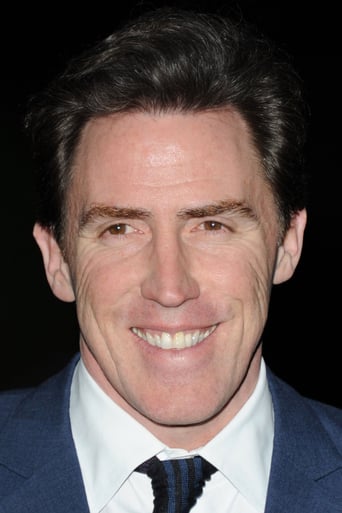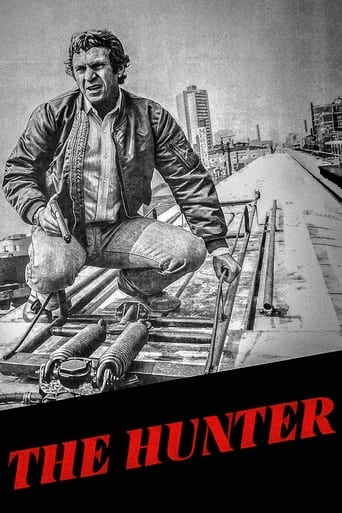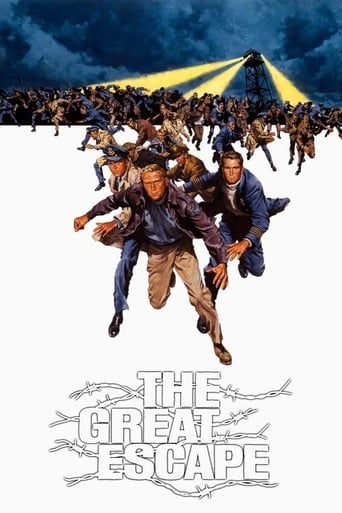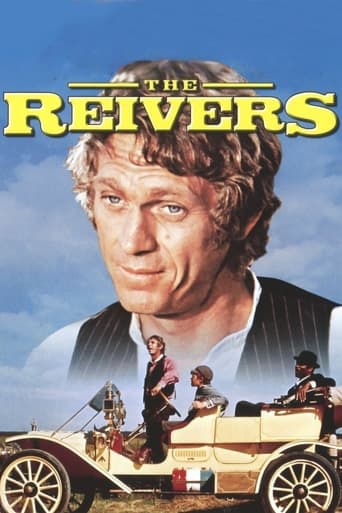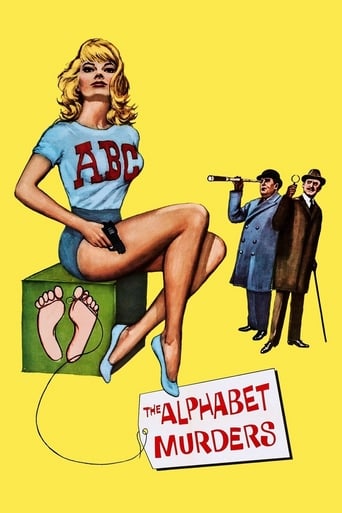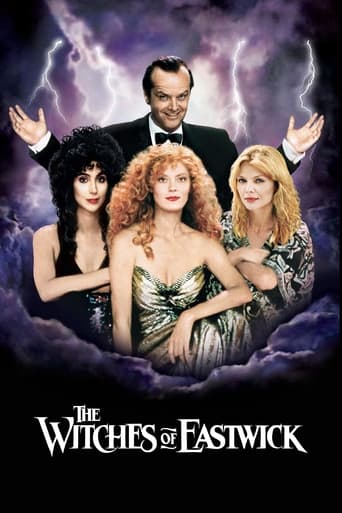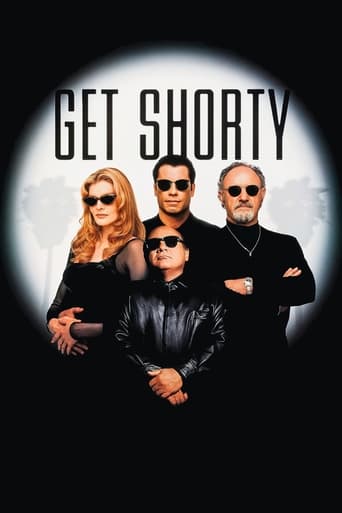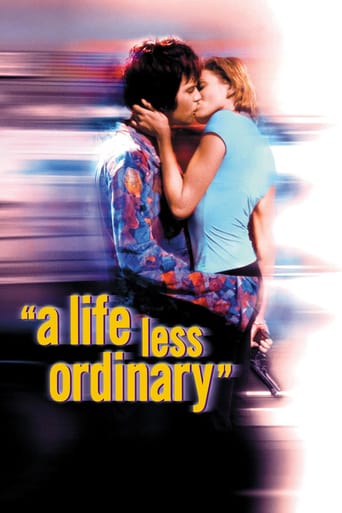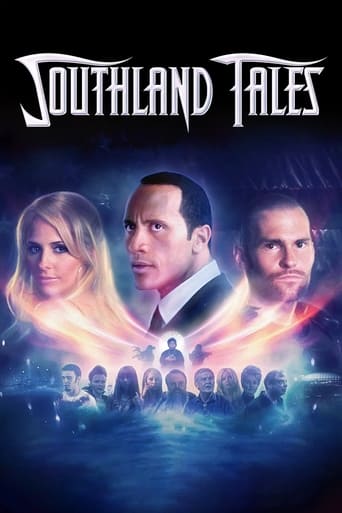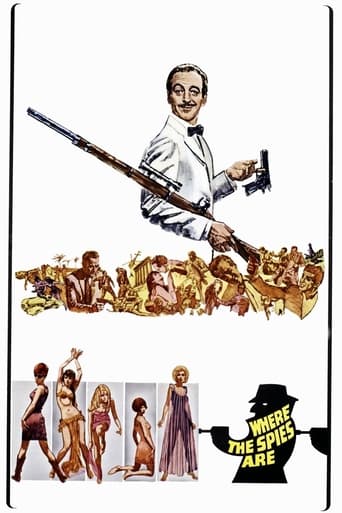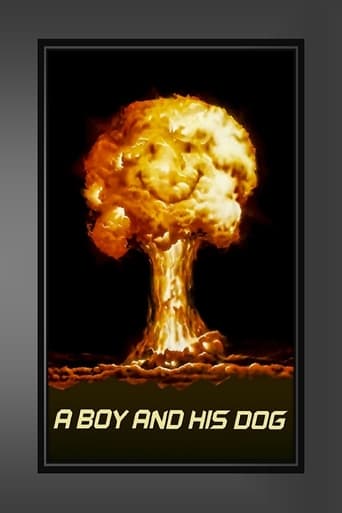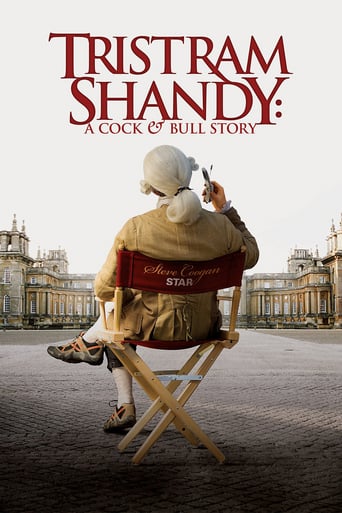
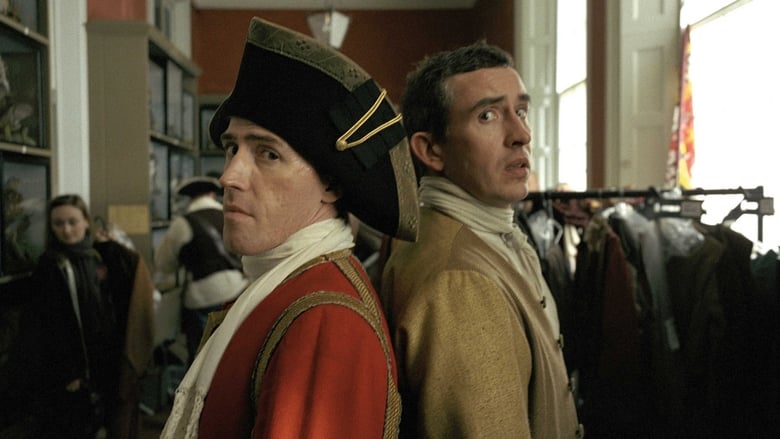
A Cock and Bull Story (2005)
Steve Coogan, an arrogant actor with low self-esteem and a complicated love life, is playing the eponymous role in an adaptation of "The Life and Opinions of Tristram Shandy, Gentleman" being filmed at a stately home. He constantly spars with actor Rob Brydon, who is playing Uncle Toby and believes his role to be of equal importance to Coogan's.
Watch Trailer
Cast


Similar titles
Reviews
We enjoyed "24 Hour Party People," but decided to delete this one from our Netflix queue after we watched "The Trip" on streaming (hated it!). Forgot to do that though, and since our next couple of choices turned out to be unavailable . My wife bailed pretty quickly; the whole mockumentary thing and Steve Coogan's beyond-obnoxious "Steve Coogan" persona were starting to grate a bit-- though, in contrast to "The Trip," the childish rivalry between Coogan and Rob Brydon gets to be kind of funny, in a Shandyish, over-the-the-top sort of way. Then about halfway through, when it seems like you're not going to see any more scenes from the book and that things can't get any more aimless and chaotic, the whole project suddenly comes into focus. A Woody Allen–style bit in which the pig-ignorant Coogan hits on a cute film buff by pretending to be a Fassbinder fan suddenly backfires in an interesting, even affecting, way, and a cleverly set-up sight gag makes Coogan literally shrink to Lilliputian size after Brydon nails a romantic scene with goddessy Gillian Anderson. (I guess what it boils down to is that the film becomes quite entertaining when Coogan starts to get his rear kicked. ) The scenes from "Tristram Shandy" that do make it into the final cut certainly reflect the novel's brilliant and exasperating qualities; good work by Shirley Henderson as a careless nursemaid, Naomie Harris as the film-buff PA and Ian Hart as the much-put-upon screenwriter. The contrast between the pampered, narcissistic actors and the obsessive professionalism of the offscreen talent is especially striking; -I liked the tireless wardrobe mistress and the Aspie battle-scene coordinator who gives every extra an "authentic" 1695 character name (one of them's "Flee-Fornication Jones" or something like that, obviously a Puritan). Summing up: -it may seem like a loser at first, but stay with it
I loved the opening scene, a parody and rip off of Peter Greenaway's 'The Draughtsman's Contract' with its jaunty Elizabethan sounding chamber music and the actors walking around the garden early morning, in period style.Whether the viewer knows of, or even cares about the unfilmable novel they're supposed to be filming is of little matter. The 18th century novel, The Life and Opinions of Tristram Shandy, Gentlemen, seems obscure and impossible to follow, at least as it's presented here. That's because Michael Winterbottom's follow up to his brilliant 24 Hour Party People, but which goes in an as opposite direction as possible, neatly follows the film being made.With the current enthusiasm for period drama, with Downton Abbey et al, this is specially pertinent. And with recent TV half-hour comedies, we know that Steve Coogan and Rob Brydon make very comfortable comedic bed- fellows, with impersonating banter and sparring off each other and here, they do just that - and it's great. A whole host of almost every known face in U.K. TV comedy kingdom are somehow dropping in their comments and gags, usually pertinent to the film, some not.As I said, for most, the actual narrative elements of the novel being filmed quickly take a back seat and attempts to associate scenes with those and what they mean just gets hazy and confusing. So, for us mere mortals, we don't care whether Coogan, as actual modern Steve Coogan is a fictionalised version of the original Tristram Shandy and so the domestic scenes become dreary. We don't really need to see babies being put to bed, do we?This was my second viewing, on BBC2 and it was still interesting. As a mockumentary, a semi-serious send up of that so very British Institution, the period drama it works well, as does the loosely-written comedic interludes. Though the critics may cringe and disagree (they liked this film), it's probably too clever for its own good but I'm quite comfortable thinking that I'm enjoying a film that the literary dons do, too.
"Tristram Shandy" is first and foremost a cock and bull story. The comedy is not delivered via a typical linear story arc or by humorous turns of phrase that are funny regardless of context. Rather, Shandy explores the ideas that humor and insight into the human condition can be gained through a film that is highly self-referential and that breaks the rules of conventional storytelling. Beyond this, the film tries to create subtle shifts in audience mood through some seemingly blatant manipulation. These are not easily accomplished goals for a ninety minute film. In fact, Shandy hinges on several assumptions that it makes about who are watching the film. If a potential viewer finds that they, for whatever reason, cannot abide by these initial assumptions, this film will be experienced as a painful bore rather than a nuanced study of the interaction of life and art.The first and possibly most important assumption is that the audience member watching the film will immediately engage the characters and scenarios without having much context. Such an engagement is similar to joining a group of stranger's conversation while at a bar. The bar's convivial atmosphere encourages socialization but actually braking into a new "world" without much prior context is difficult and sometimes uncomfortable. Shandy requires that one take the initial plunge into another "world" very quickly. If one does enter the Shandy world, they are rewarded with rich, sarcastic, and dynamic characters. If one chooses to remain aloof and simply watch the film, then the film quickly degrades into the boring obnoxiousness of being at a bar with a loud and distracting table of strangers.Secondly, Shandy functions when the audience does not pass immediate judgment on the characters. There are no real stock characters to be found here. As such, each character has a variegated personality consisting of positive and negative aspects. Again, think of the bar situation. If one introduced themselves to a table of strangers and then judged them all as boring within thirty seconds, the outcome would be awkward to say the least. Shandy works when the audience interacts with the characters as if they are new acquaintances. Just as new people in our social spheres reveal their personalities over time, the characters in Shandy develop throughout the course of the film. In addition, just as we decide if new people in our social spheres are "good" or "bad," Shandy's characters gain depth if we put them through this extended judgment process.A final assumption is that audience members are able to detect and appreciate fast paced and unexpected sarcasm. In all honesty, this is by far the most difficult challenge to the viewer. As mentioned above, the audience is being asked to quickly loose itself in the context of a somewhat banal world of these complex characters. Now, the audience is also being asked to keep on the lookout for humorous quips and behavior patterns derived from the above mentioned context. This is possibly the least valid of the assumptions. Most audiences are willing to suspend disbelief and loose themselves in the moment (at least I hope they do), yet asking a bunch of strangers to join you for some inside jokes after interacting with them for five to ten minutes is bound to cause problems. Some members of the audience may not want to be included or perhaps miss many of the jokes and humor due to lack of context. If one does realize what is expected of them, the film has a wonderful ability to manipulate and tickle you with some rather brazen tactics. For example, the actor playing Tristram is being visited by his girlfriend and newborn son. In addition, the previous night, the same actor is portrayed as kissing a lovely production assistant. The audience is given the briefest of contexts for establishing the Tristram actor as a lecherous jerk. In a following scene, the actor, director, story writer, and crew discuss how to make Tristram's father's character more appealing to the audience. In the end, the group decides that a scene involving the father holding and caring for his infant son would sway the audience to like him. Following the meeting, the actor finds that his son is crying and takes a minute to change his diaper and sing to him. The lecherous jerk is almost immediately given a "get out of jail free" card due to his kindly actions. The connection is ridiculously blatant. Film crew discusses how to make an unlikeable character more likable and then an unlikeable character does the very same thing. As audience, we are outright told what to expect and yet when it happens, the tender feelings that develop become surprisingly normal. In addition, one is tickled upon realizing the manipulation and the success of the manipulation.In regards to technical notes, Shandy is by all means a professional film. The camera work, editing, pacing, sound, and acting are all very well done. Shandy potentially falters by asking a great deal from an unsuspecting audience. It could be construed as a design flaw that a film practically needs a user's manual before watching. That said, if one does take the time to fulfill the assumptions of the film makers, Shandy is a very humorous look at the idiosyncrasies of a particular group of people.On a personal note, I will be recommending this film to my friends and colleagues. It is somewhat challenging as an experience, but leaves the viewer with the feeling that they just finished a well cooked good meal. I would rank this a 7.5 if possible.
Steve Coogan, having wowed all with the send-up of Reactionary England that is Alan Partridge, ponders what he will do next.Stephen Fry, channelling the hurt of the Native Americans dug up in the excellent TV show QI, communicates with Partridge via telekinesis. He suggests they show off by making a literary adaptation.This is a joke.Partridge protests at the last paragraph, insisting that "A Cock and Bull Story" is considerably more amusing than it. I smush him. Nonetheless, the film became legion, making lots of people watch.Somewhere, a young man vomits.



